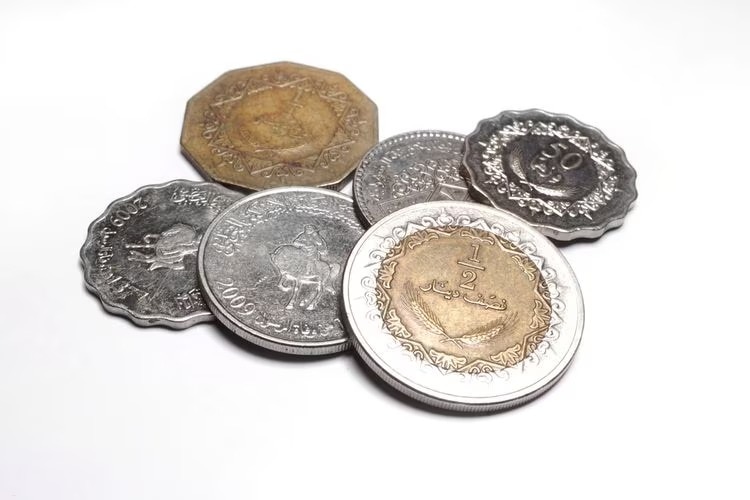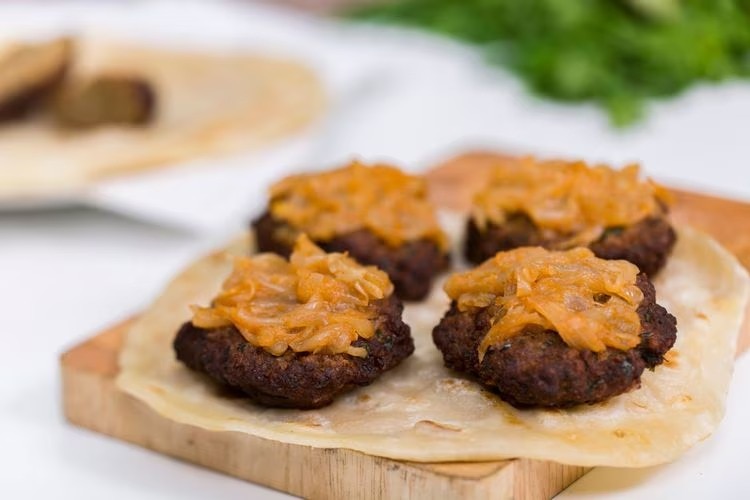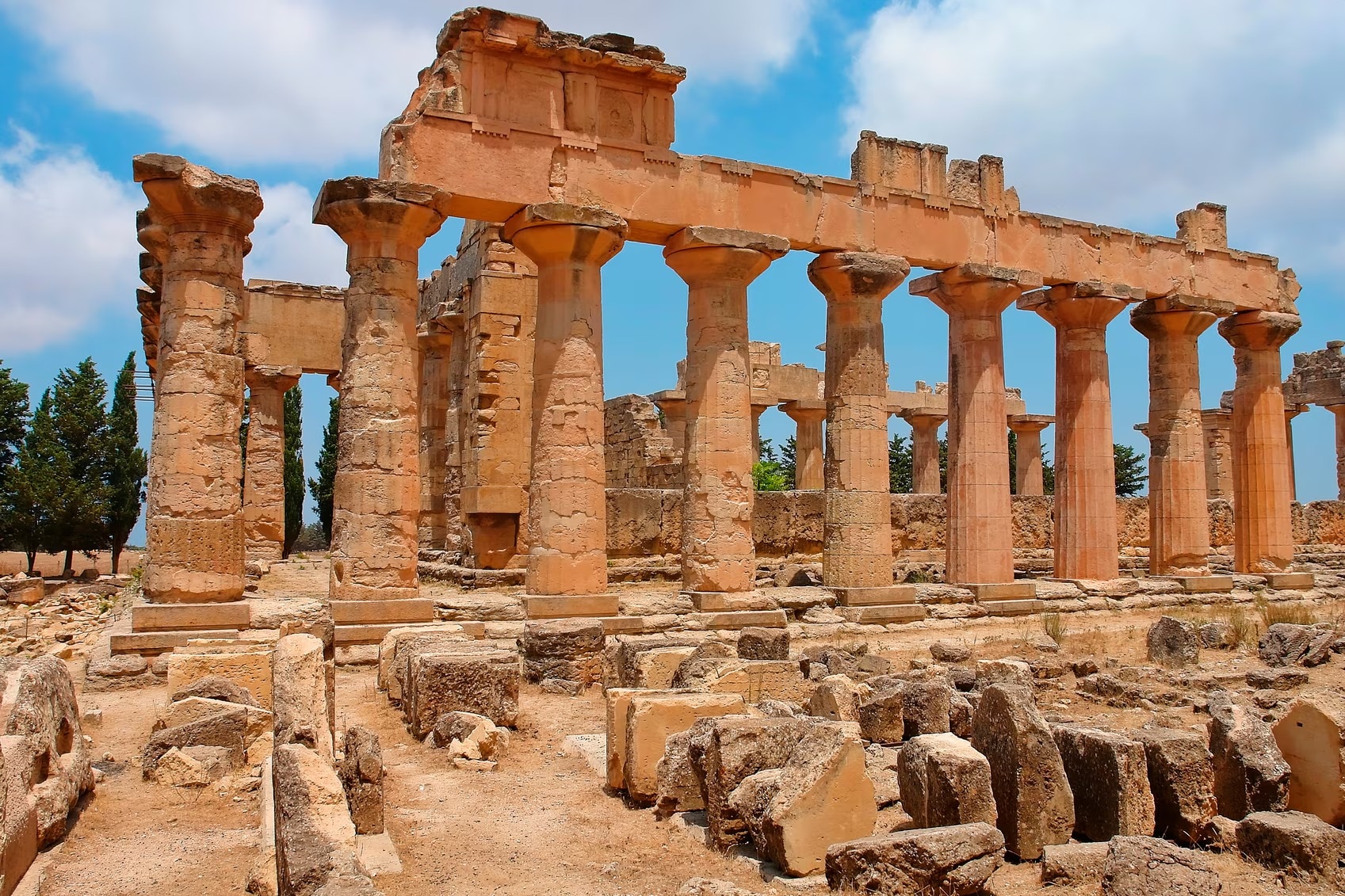Libya Travel Tips and Information

Origin of Image source: shutterstock.com
Official Name
State of Libya
Capital
Tripoli
Population
Country Code
Around 7.38 million
LY
Country Code (international calls)
+218
The flight time to Libya is approximately ---- hours. Check the climate, currency, religion, manners, other information of Libya below. Wishing you pleasant travels to Libya.
Libya is situated in North Africa, with approximately 90% of its land covered by desert.
Local Climate / Weather
Libya's climate is primarily arid, with hot summers and mild winters, especially in desert areas, making it essential for travelers to consider the seasonal conditions before visiting. In the coastal regions, including Tripoli and Benghazi, a Mediterranean climate prevails, with milder, wetter winters and hot, dry summers, while the vast Saharan regions experience extreme heat and dryness year-round. ・Summer (June to August): Summer in Libya can be intensely hot, especially in desert areas where temperatures can soar above 40°C (104°F). Coastal regions are slightly cooler but still warm, often exceeding 30°C (86°F). For travelers who may not be accustomed to such heat, this season requires extra precautions, such as staying hydrated, wearing sun protection, and avoiding outdoor activities during peak sun hours. Winter (December to February): Winter is the most comfortable season for travel, with temperatures ranging from 8°C to 20°C (46°F to 68°F) in coastal areas. In the desert, nights can be cold, so packing layers is advisable. Winter is ideal for exploring Libya’s archaeological sites and deserts without the sweltering heat. Spring (March to May) and Autumn (September to November): These transitional seasons offer moderate temperatures and are considered the best times to visit, with pleasant weather for sightseeing and outdoor adventures.
Currency & Tipping
Currency
When visiting Libya, understanding the currency and tipping customs can enhance your travel experience. Libya’s official currency is the Libyan Dinar (LYD), often abbreviated as "LD" locally. Travelers will typically need to exchange foreign currency upon arrival, as the LYD isn't widely available outside Libya. ATMs are accessible in urban centers, but it’s advisable to carry cash, especially when venturing outside major cities.
Tipping
Tipping in Libya is appreciated but not obligatory. In restaurants, leaving a tip of around 10% is customary if service charges are not included. For smaller services, such as taxis or hotel porters, rounding up the fare or giving a small gratuity is a considerate gesture. Following these currency and tipping guidelines can help ensure smooth interactions with local services during your stay.
Useful Travel Information

Voltage & Electrical Outlets
In Libya, the standard voltage is 230V, with a frequency of 50Hz. Power sockets generally use Type C and Type L plugs. Travelers may need a universal adapter or a voltage converter if their devices are not compatible with this setup. It’s best to check your electronics in advance to avoid any disruptions during your stay.

Internet Connectivity
Libya’s internet services have been improving, and mobile connectivity is widely available in urban areas. Two of the prominent local carriers are Libyana and Almadar Aljadid. Both companies offer prepaid SIM cards with data packages, making it easy to stay connected for navigation, social media, and communication needs. Coverage may vary outside major cities, so check for network availability if you’re venturing to remote areas.
Water for Consumption (Drinking Water)
Tap water in Libya may not be safe for drinking for those unaccustomed to the local water quality. It is recommended that travelers rely on bottled water for drinking and brushing teeth. Bottled water is readily available in supermarkets, hotels, and convenience stores across the country. Carrying your own supply is a good idea when traveling to rural or remote areas.
Culture, Religion & Social Etiquette
Culture
Libya's culture is deeply rooted in its North African and Arab heritage, with influences from Mediterranean and Berber traditions. Hospitality is a cornerstone of Libyan society, and visitors are often greeted warmly. Traditional clothing, such as the jard, a long cloak worn by men, and darraa, a loose garment for women, is commonly seen during special occasions and celebrations. Libyan society places a strong emphasis on family values and community gatherings, often centering around meals. Traditional music and dance, like the zokra (a type of flute), add to the country's vibrant cultural landscape. Learning a few local customs, such as greeting with a smile or offering tea when socializing, is highly appreciated and can enhance your experience in Libya.
Religion
Libya is predominantly Muslim, with Islam shaping much of the country's cultural and social framework. The majority of Libyans practice Sunni Islam, and religious observance is woven into daily life. Friday prayers are especially significant, as they are considered a time for community reflection and worship. During the holy month of Ramadan, visitors should be mindful of local practices, including fasting from dawn until sunset. While Libya is largely traditional in its religious observances, travelers will find that respect for these practices is met with friendliness and warmth from locals. It is courteous to dress modestly and avoid public displays of affection out of respect for local customs.
Social Etiquette
Understanding and respecting Libyan etiquette is essential for travelers. When greeting someone, a light handshake or placing your hand over your heart can show respect, particularly for women. Libyans are known for their generous hospitality, and visitors are often invited into homes or offered tea as a sign of warmth and friendship. When entering a home, it is polite to remove your shoes, and guests typically wait to be invited to sit. Conversation should be approached politely; topics like politics and religion are sensitive, so it's best to listen more than to initiate discussions. As Libya is a conservative society, modest attire is appreciated, especially in rural areas. Showing respect for these customs can enhance interactions with locals and make for a more enjoyable visit. By understanding Libya’s unique blend of traditions, religion, and etiquette, travelers can experience Libyan culture more authentically while fostering goodwill with locals.
Food Culture
Libyan cuisine offers a unique blend of Mediterranean, North African, and Middle Eastern flavors that travelers travelers will find both exciting and comforting. Traditional dishes are known for their aromatic spices, hearty portions, and the use of fresh, locally sourced ingredients like olive oil, grains, and spices. A staple in Libyan meals is couscous, often served with lamb or fish and richly flavored with a medley of spices. Another beloved dish is bazin, a thick, doughy bread often served with lamb stew and eggs, which is particularly popular during family gatherings and special occasions. For those eager to experience Libyan street food, shakshouka, a dish of poached eggs in a spicy tomato sauce, is a must-try. Another street favorite is asida, a doughy dessert that’s typically enjoyed with a honey or date syrup drizzle—a unique treat that offers a sweet taste of Libyan culture. All travelers can also look forward to sampling libban, a savory yogurt drink that pairs well with many of Libya’s traditional dishes and provides a refreshing break from the heat. In Libya’s capital, Tripoli, travelers will find several recommended local restaurants that showcase authentic flavors. Al-Saraya Restaurant is celebrated for its rich couscous and tagine dishes, offering a cozy ambiance perfect for enjoying traditional meals. Storico Ristorante provides a more modern dining experience while still offering authentic Libyan dishes with a contemporary twist, ideal for those seeking a blend of traditional and modern flavors. Whether it’s enjoying aromatic dishes, savoring street food, or dining in recommended local spots, travelers will find Libya’s food culture an enriching part of their journey.
Major Tourist Attractions & UNESCO World Heritage Sites
Major Tourist Attractions
The archaeological site of Leptis Magna features the Arch of Triumph, a public square with an area of 8,000 square meters, Hadrian's Roman Baths, and an amphitheater. The ruins are spectacular, allowing visitors to see a Roman city while still in Africa. In addition to this, Libya has other important tourist destinations, including World Heritage sites. However, the country continues to be politically unstable and civil war has broken out, with urban and industrial areas under attack. Therefore, these valuable sites may be subject to destruction in the future.
UNESCO World Heritage Sites
There are five cultural heritage sites in Libya that are on UNESCO's World Heritage List. They are the archaeological site of Sabratha, the archaeological sites of Leptis Magna and Cyrene, the rock art sites of Tadralto Akacus, and the Old Town of Gadarmis. Among them, Leptis Magna is a must-see tourist attraction because it is well preserved and is also the largest archaeological site in North Africa.
Voice of Travelers to Libya
Fascinating culture and history in Libya
I'm from Spain, and last year my family and I decided to book a family ticket to Libya. We had never been to Africa and Libya seemed like a great choice. We booked our ticket with AirFrance and got a reasonably priced ticket. Arrived in our hotel in Libya and tried to find ourselves a local giude to help us explore Libya. We were very interested in Libya's culture and history so we wanted to learn more. Buying a ticket to all the local museums is a must in Libya. If you are interested in history, Leptis Magna, Roman Sabratha, the ancient ruins of Cyrene, Ghadames City, all would leave you breathless. Our flight back home was also smooth and easy, and we all had an amazing trip to Libya: our ticket was a great choice!
Best ticket deal to Libya
Last summer I saw a newspaper advert for low ticket prices to exotic destinations (including Libya), and couldn't stop thining about the great value ticket. Eventually I spoke to my family and called AirFrance to book the ticket to Libya. The flight was surprisingly smooth and the plane was clean and modern, especially impressive given the low ticket price. We arrived in Libya and were ready to go sightseeing. We loved Libya's traditional food, friendly people, wonderful architecture and got a ticket to all the local events to get into Libya's spirit. An amazing experience with AirFrance and I would always book my tickets with this airline.
Travel FAQs
What is the safety situation in Libya like? What should I be careful of?
Libya is currently experiencing significant instability due to ongoing armed conflicts, political unrest, and a high risk of terrorist activities. Travelers considering travel to Libya should exercise extreme caution. It is advisable to avoid all travel to the country due to the volatile security situation. If travel is essential, ensure robust security measures are in place, stay informed about local developments, and maintain contact with the Embassy for assistance.



